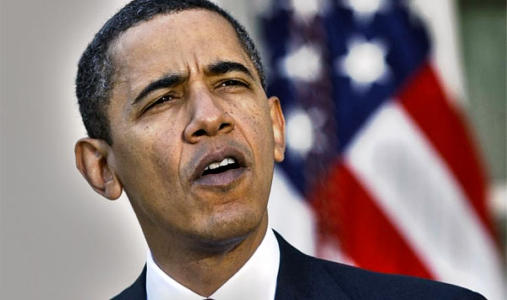 President Obama is using Whig history to shape the narrative arc of his economic achievements.
President Obama is using Whig history to shape the narrative arc of his economic achievements.
In 1931, Herbert Butterfield, an Oxford University don, wrote a short book entitled The Whig Interpretation of History. It’s not on today’s NYT’s Best Seller list, but it does describe President Obama’s efforts to frame the economic policies of his tenure as POTUS in a favorable light.
Back in the 30’s, Butterfield argued that historians who addressed English history from the 17th Century forward often did so with a bias for Protestants and Whigs, and against Catholics and Tories.
Butterfield labeled the product of Whig historians as “abridgements” that reflected the impact of current politics on past events. In other words, Whig historians, he argued, were prone to bend the “narrative arc” (one of POTUS candidate Obama’s favorite phrases) to fit their political template.
We’ve heard several renditions of Whig history methodology during the Obama regime signaled by lead-ins such as “history proves that…,” “its settled science that…,” “it’s the law of the land…” It’s all language that intends to close any further discussion in a debate – it’s done, over, case closed. Whig historians don’t like facts contrary to their bias.
In Butterfield’s own words:
“The whig historian has the easier path before him and his is the quicker way to heavy and masterly historical judgments; for he is in possession of a principle of exclusion which enables him to leave out the most troublesome element in the complexity. By seizing upon those personages and parties in the past whose ideas seem the more analogous to our own, and by setting all these out in contrast with the rest of the stuff of history, he has his organisation and abridgement of history ready-made and has a clean path through the complexity. This organization of history will answer all questions more clearly than historical research is ever able to do. It will enable him, even before he has studied anything very deeply, to arrive at what seem to be self-evident judgment concerning historical issues.” (pp. 28-29, 1950 edition, London, G. Bell and Sons, LTD)
A recent zerohedge.com article, entitled Obama Admits Couldn’t “Convince Americans Of Recovery”, Bashes ‘The Big Short’, outs Obama’s campaign to shape his economics legacy.
“Despite his proclamation that he ‘saved the world from a Great Depression,’ the fact is that Obama will be the first President ever to not see a single year of 3% GDP growth – but only cynical fiction-peddlers would mention facts at a time like this. In yet more legacy-defending narrative, Obama told The NYTimes today that his biggest failure was being unable to sell his success in putting the American economy back on track to the American people (no matter the actual realities) careful to blame Republicans for slowing growth ‘by a percentage point or two.’ And then in a final affront to fact, Obama dismisses the conclusion of “The Big Short” proclaiming that he reined in Wall Street, overhauled the banking system, and made water from wine ‘the financial system substantially more stable.’” (highlighted in the on-line source)
Obama’s efforts to shape his economics legacy will, according to Butterfield, be hard to deconstruct because “…this whig tendency is so deep-rooted that even when piece-meal research has corrected the story in detail, we are slow in re-valuing the whole and reorganizing the broad outlines of the theme in the light of these discoveries” (p. 5) Point: It’s hard to un-write Whig history.
So it’s likely that high school economics textbooks twenty years from now will report how President Obama saved America from another Great Depression. And, how he would have accomplished substantial economic growth had it not been for the deep-seated, race-based opposition of his detractors. And so it goes.
Source: American Thinker
